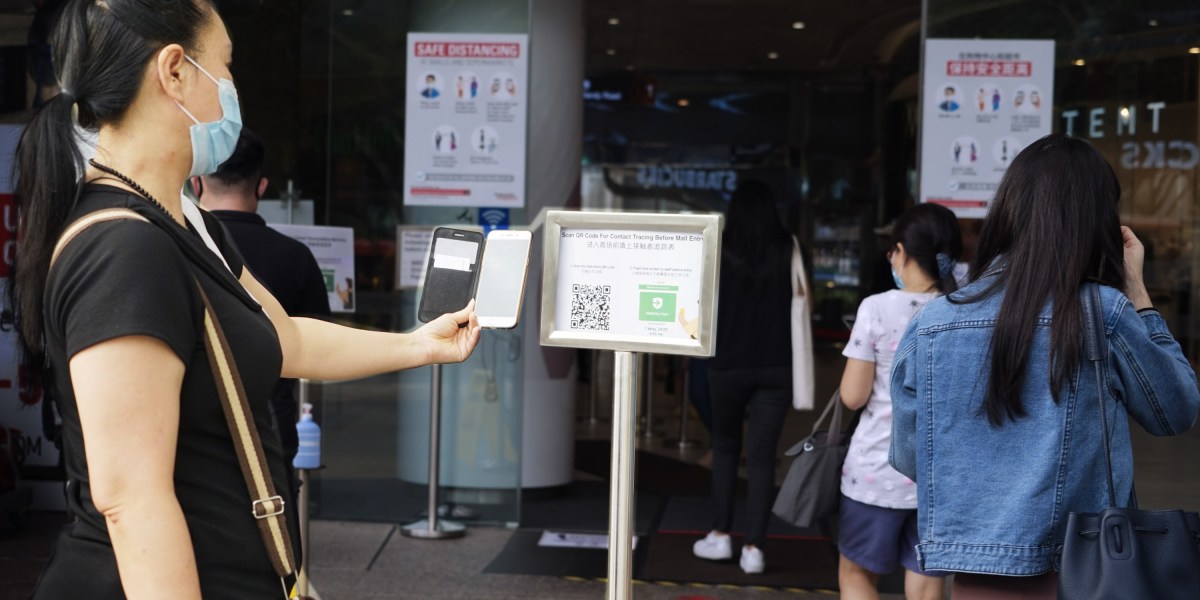Broken promises: How Singapore lost trust on contact tracing privacy

For Singaporeans, the covid-19 pandemic has been closely intertwined with technology: two technologies, to be specific. The first is the QR code, whose little black-and-white squares have been ubiquitous all over the country as part of the SafeEntry contact tracing system rolled out in April and May.
Under SafeEntry, anyone entering a public venue—restaurants, stores, malls—must scan a code and register with a name, ID or passport number, and phone number. If somebody tests positive for covid-19, contact tracers use it to track down those who got close enough to be potentially infected.
There’s also TraceTogether, an app that launched in March 2020. It uses Bluetooth to ping close contacts; if two users are in proximity, their devices trade anonymized and encrypted user IDs that can be decrypted by the Ministry of Health should one person test positive for covid-19.
For those who can’t or don’t want to use a smartphone app, the government also offers TraceTogether tokens, small digital fobs that serve the same purpose. And while TraceTogether is currently voluntary, the government has announced that it is going to merge the two systems, which would make it mandatory to either download the app or collect a token.
When the two systems were launched, there wasn’t much space for the public to discuss apprehensions: they were seen as necessary to fight the pandemic, and the Singaporean government acted in typical top-down fashion. It did seek to assuage fears, however, by repeatedly assuring Singaporeans that the data collected with such technology would be used only for contact tracing during the pandemic.
And that’s where things went wrong.
Private data being used by police
Earlier this month, it emerged that the government’s claim was false. The Ministry of Home Affairs confirmed that data could actually be accessed by the police for criminal investigations; the day after this admission, a minister revealed that such data had, in fact, already been used in a murder investigation. It rapidly became clear that despite what ministers had previously said, Singaporean law meant it had been possible for law enforcement to use TraceTogether data all along.
These revelations triggered public anger and criticism, not necessarily because Singaporeans are particularly privacy conscious—in fact, state surveillance is largely normalized in the country—but because people felt they’d been subjected to a bait-and-switch. Many people had reservations about TraceTogether when it was first launched, and only began using it in large numbers after the government indicated that it would soon become mandatory. (According to the cochair of the task force on covid-19, nearly 80% of Singapore’s residents have adopted TraceTogether.)
The government has since announced that it will introduce new legislation to limit law enforcement’s use of contact tracing data to probes into seven specific categories of offense, including terrorism, murder, kidnapping, and the most serious drug trafficking cases. (The MIT Technology Review Covid Tracing Tracker, which monitors the policies around exposure notification apps worldwide, is being updated to reflect this shift.)
